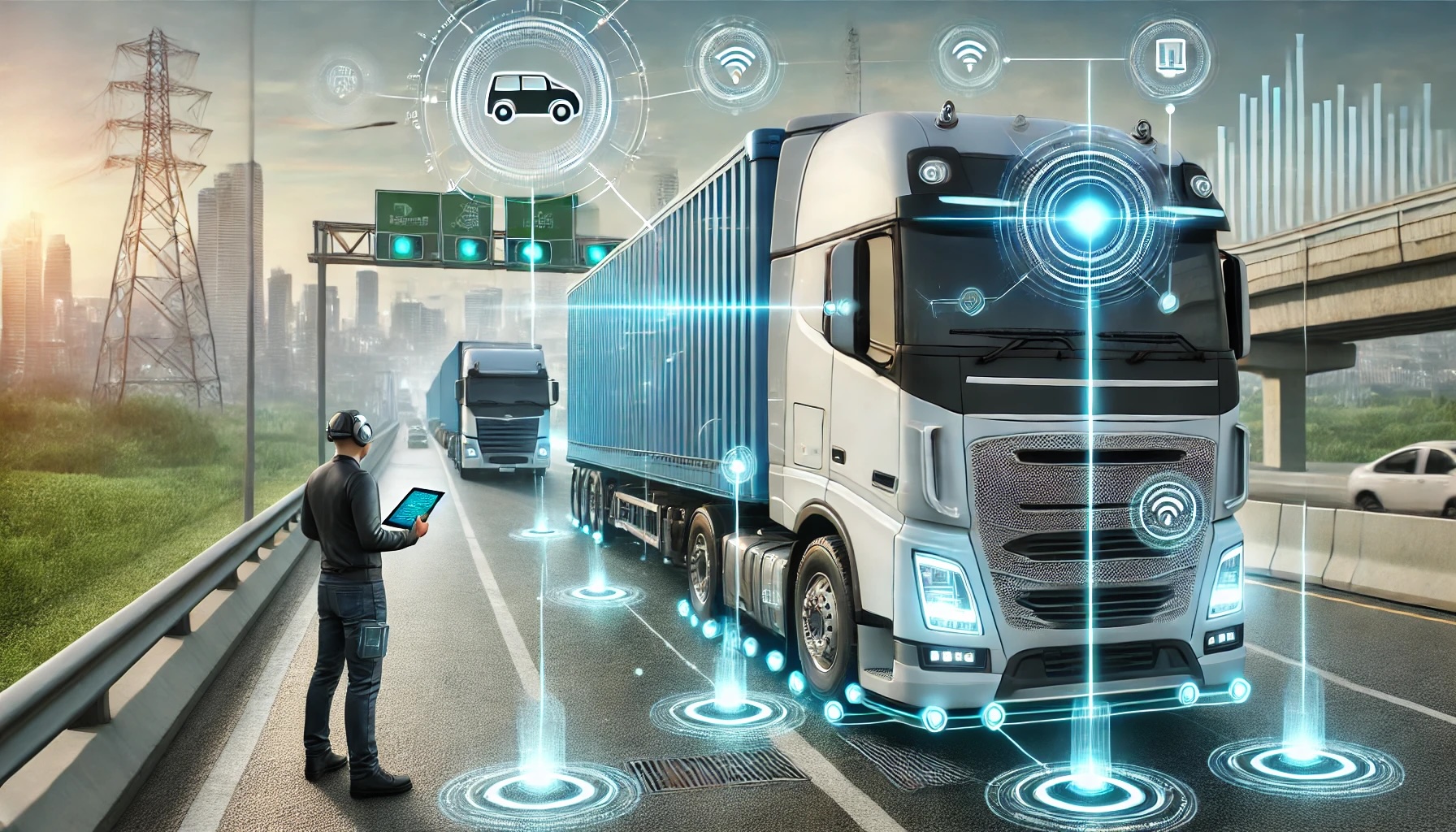- By - Joe Soliz
- December 4, 2024
- Comments (0)
The commercial vehicle industry is undergoing a paradigm shift. Advances in technology have transformed trucks from mere workhorses of the road into highly intelligent machines capable of monitoring, diagnosing, and optimizing their own performance. These innovations are not only enhancing operational efficiency but are also redefining the role of truck drivers, who are evolving into “road engineers” managing and monitoring the complex systems underpinning these smart machines.
Smarter Commercial Vehicles
Commercial vehicles today are increasingly equipped with a suite of advanced technologies, including telematics, artificial intelligence (AI), and the Internet of Things (IoT). These features allow trucks to monitor their surroundings, communicate with other vehicles and infrastructure, and even predict maintenance needs before problems arise.
For instance, predictive analytics uses data from sensors embedded throughout the vehicle to assess engine health, tire pressure, and fuel efficiency in real-time. This enables fleet managers to schedule maintenance proactively, reducing downtime and cutting costs. Advanced driver-assistance systems (ADAS), such as adaptive cruise control and automated emergency braking, also play a pivotal role in enhancing safety and reducing driver fatigue.
Moreover, smart logistics platforms integrate these technologies to provide fleet operators with end-to-end visibility of their supply chains. Real-time tracking of shipments, route optimization, and dynamic scheduling are now standard practices powered by connected commercial vehicles.
The Evolving Role of the Truck Driver
As trucks become smarter, the role of the truck driver is shifting from manual operator to technical overseer. Drivers are no longer solely focused on steering and navigating but are now required to monitor and manage the intricate systems embedded in their vehicles. This transformation calls for a new skill set—one that combines traditional driving expertise with proficiency in operating and troubleshooting advanced technology.
Truck drivers, now akin to road engineers, are responsible for interpreting diagnostic data, responding to system alerts, and ensuring that automated systems function as intended. Their ability to interface with these technologies not only ensures smooth operations but also maximizes the performance benefits of smart vehicles.
This shift also underscores the importance of training and education. Many companies are investing in upskilling programs to prepare drivers for the demands of this new era. Courses on telematics, data analytics, and system troubleshooting are becoming integral to driver training curriculums.
Challenges and Opportunities
While the benefits of smarter commercial vehicles are substantial, the transition is not without challenges. Drivers must adapt to an increasingly technical role, which can be daunting for those accustomed to traditional methods. There is also a need to ensure equitable access to training programs, particularly for drivers in underserved communities.
However, these challenges present opportunities for the industry to innovate. Collaboration between technology providers, fleet operators, and educational institutions can pave the way for tailored training programs and accessible learning platforms. These initiatives not only empower drivers but also foster a more sustainable and efficient transportation ecosystem.
A Collaborative Future
The transformation of commercial vehicles and the evolving role of truck drivers highlight a broader trend: the integration of technology and human expertise. While machines are becoming smarter, the human element remains indispensable. Truck drivers, as road engineers, bring the judgment, adaptability, and problem-solving skills that no machine can replicate.
As the industry continues to advance, collaboration between stakeholders will be crucial. By embracing this new reality, fleet operators can harness the full potential of smart vehicles, while empowering drivers to excel in their expanded roles. Together, they can build a future where technology and human ingenuity drive the commercial vehicle industry forward.
Conclusion
The rise of smarter commercial vehicles is revolutionizing the transportation industry. Truck drivers, now road engineers, stand at the intersection of technology and logistics, ensuring these intelligent machines operate at peak efficiency. With proper training and support, they are poised to lead the industry into a future marked by innovation, safety, and sustainability.
